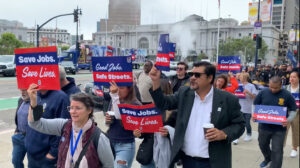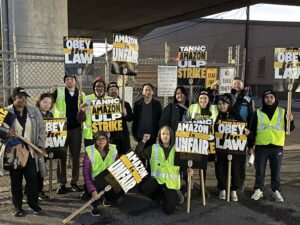UPS lifts ban on black hairstyles and facial hair
December 17, 2020In early November, loosening its longstanding appearance restrictions, UPS will allow employees to wear beards and “natural black hairstyles.” Most observers attribute this change to the company’s belated recognition that the previous policy was discriminatory, as alleged in numerous grievances filed by Teamsters locals over the past decades.
The new policy expressly permits traditional black hairstyles, such as “Afros, braids, curls, locks, twists, and knots.” The policy also makes clear that beards and mustaches “are definitely acceptable as long as they are worn in a businesslike manner and don’t create a safety concern.”
As further evidence of its acknowledgment that we are living in the 21st Century, (and its worries about litigation), UPS also softened its rigid restrictions on uniforms, opting for a “gender-neutral” policy on appearance, tattoos, and facial piercings. The new policy instructs employees, “[n]o matter how you identify—dress appropriately for your workday.”
Had UPS failed to make this change to its hair and beard policy, it would have run afoul of California’s Creating a Respectful and Open Workplace for Natural Hair (CROWN) Act, which was signed into law on July 3, 2019. The CROWN Act expands the definition of race discrimination to include traits historically associated with race, such as hair texture and protective hairstyles (such as braids and cornrows, which are meant to keep hair healthy).
The CROWN Act creates a link between hair and race, long sought by racial-justice advocates, and acknowledges that old standards of professionalism are “clearly linked to European features,” often requiring those of a non-European dissent to “alter their appearances, sometimes drastically and permanently, in order to be deemed professional.”
Since it passed in California, versions of the CROWN Act have been enacted in six other states, including New York and New Jersey. Moreover, in September, the U.S. House of Representatives passed a federal version of the CROWN Act, and it is now be considered by the Republican-controlled Senate. If the bill is signed into law at the federal level, it would make discrimination based on hair texture and protective hairstyles unlawful nationwide.





